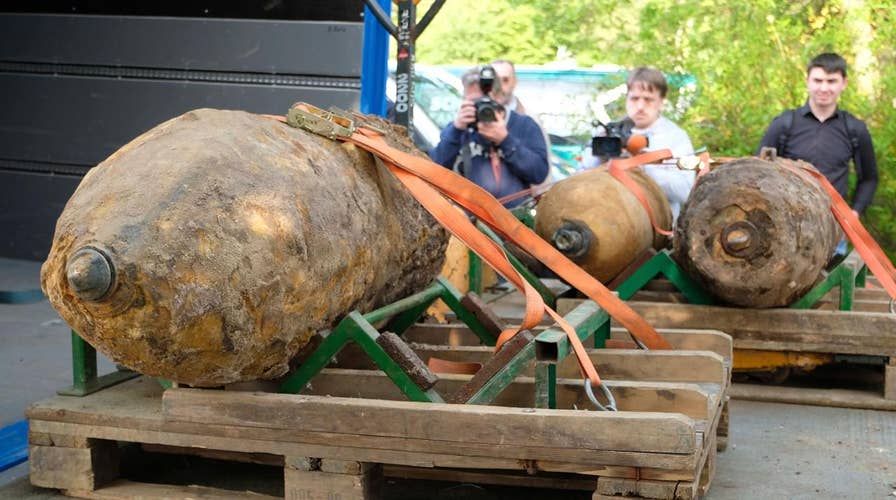Unexploded WWII bombs force mass evacuation in Germany
More than 50,000 people were forced to flee their homes in the German city of Hanover, as experts defused three unexploded bombs dating from World War II
At least 50,000 people are being forced out of the center of Hannover after five unexploded World War II bombs were discovered.
People living in the city, as well as businesses, have been told to ensure their water, electricity and gas supplies are turned off before they leave.
It is one of the biggest post-war operations to diffuse devices, mostly dropped in aerial attacks by Allied forces.
Bomb disposal expert Chris Hunter described the find as "quite a significant incident", telling Sky News: "We don't tend to see five at once."
7,000 BODIES FROM MENTAL INSTITUTION BELIEVED BURIED ON MISSISSIPPI CAMPUS
Among the people moving out of a densely populated area are elderly residents of retirement and nursing homes. Transport throughout the city is also being disrupted.
For those affected, authorities have laid on a range of sports, cultural and leisure activities, including trips to museums and film screenings.
Mr Hunter explained that a property boom and construction work are among the reasons for an increase in the discovery of WWII bombs, as well as people spending more time outdoors as the weather gets warmer.
FROZEN IN TIME: DNA MAY ID SAILORS LOOKING FOR NORTHWEST PASSAGE IN 1845
He said that high-explosives lying dormant for years, on devices that often have booby-trap mechanisms, can be ready to detonate any second.
"It's inherently dangerous," he said.
The evacuation of Hannover is the biggest of its type since Christmas, when an unexploded British bomb forced 54,000 people out of the southern city of Augsberg.
This story originally appeared on SkyNews.









































